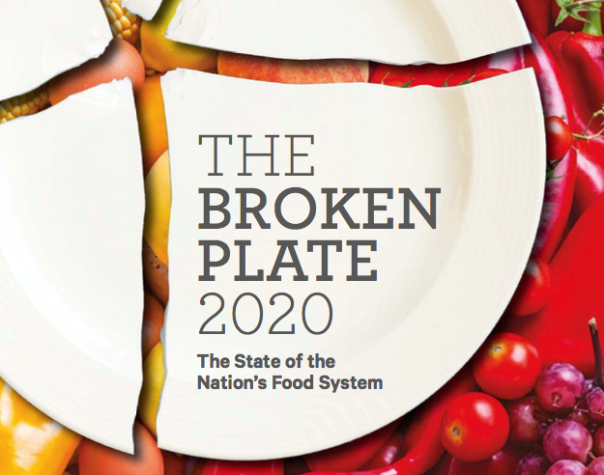
The report examines ten different areas, tracks progress since 2017 and includes urgent recommendations for both Government and business necessary if we are to protect our most vulnerable communities.
Anna Taylor, executive director of Food Foundation, said of the new report: “The Broken Plate provides us with ten vital signs of whether our food system is helping us to live healthier lives.
“Covid has exposed the devastating consequences of diet-related disease, showing that efforts to shift our food system in favour of healthy eating have been too little, too late.
“Leaving citizens to swim against the tide of a system which favours unhealthy eating is no longer an option. Change is possible, and we have seen improvements in three of our ten metrics, but it requires government and businesses to act much faster.”
She points to key findings from the ten metrics:
Advertising: No significant change overall in food advertising spend, with the amount spent on fruit and vegetables remaining low at just 2.9% of the total ad spend on food and soft drink. Total ad spend on soft drinks has increased, however, from 11.1% of total food and drink ad spend in 2017 to 14% in 2019, driven by a rise in advertising for low sugar and sugar free drinks likely as a result of the Soft Drink Industry Levy.
Places to buy food: 45 local authorities in England have seen more than a 5% increase in the proportion of food outlets that are fast food takeaways. The report finds a strong correlation between the percentage of takeaway outlets and levels of deprivation in local authorities.
Affordability of a healthy diet: There remains a huge difference in how affordable the government’s recommended diet is depending on how wealthy a household is. The poorest 20% of UK households would need to spend 39% of their disposable income after housing costs in order to afford a healthy diet in line with the Eatwell Guide.
Wages: The report shows an improvement in the situation since last year for low paid workers in the industry, however it does highlight that 16% of workers in the food sector earn the minimum wage compared to 7% of all workers across the UK. The Co-Op and Nestlé are two major food businesses which have committed to paying staff the Real Living Wage.
Food Prices: Broken Plate highlights a continuing divergence between the cost of healthy and unhealthy foods, with the average cost of more healthy foods in 2019 being £7.68 (per 1000 kilocalories) compared to £2.48 for less healthy food.
Products with too much sugar: The report shows an improvement, with the proportion of children’s cereals with high sugar content decreasing by 12 percentage points between 2019 and 2020.
Products with too little veg: The report shows an improvement, with 24% of ready meals in 2020 being vegetarian or plant-based, marking a 33% increase since 2018. Worryingly, the report also highlights that often plant-based ready meals are more expensive than meat, fish or dairy alternatives.
Children with obesity: There is no real change with levels of childhood obesity among children in Reception two times higher in the most deprived areas compared to the least deprived. These disparities are growing in England and Scotland. Wales, however, seem to be reversing this trend.
Child Growth: Children in deprived communities are more than 1cm shorter on average than children in wealthy communities by the time they reach age 11.
Diabetes: Diabetes-related amputations have increased by 18% in four years
When considering what the future will hold for children born in 2020 the report models the likely health outcomes for this generation during their lifetime, finding that over half of children born this year will experience diet-related disease which will affect their quality of life by the time they reach 65 years of age.
Simon Billing, executive director of Eating Better, said of the new report: “The report lays bare the UK’s food system and paints some rather grim statistics on our future generation’s life chances.
“While there are some minor improvements on some indicators in this year’s report which are worth acknowledging, eating well remains neither affordable nor accessible for everyone.
“There have been some changes since 2019 in the food developed by retailers and manufacturers based on changing consumer demand, but more fundamental changes are needed. It furthers the case for the National Food Strategy which we so desperately need.”
Nye Cominetti, senior economist at the Resolution Foundation, said: “Workers in the food sector have been at the heart of the covid-crisis, from supermarket staff working through lockdown to get food to our homes, to the waiting staff in cafes and restaurants who have been furloughed and now face huge unemployment risks.
“Despite their difference experiences of the crisis, both groups of workers face the common challenge of endemic low pay, which the Government should continue to address.”